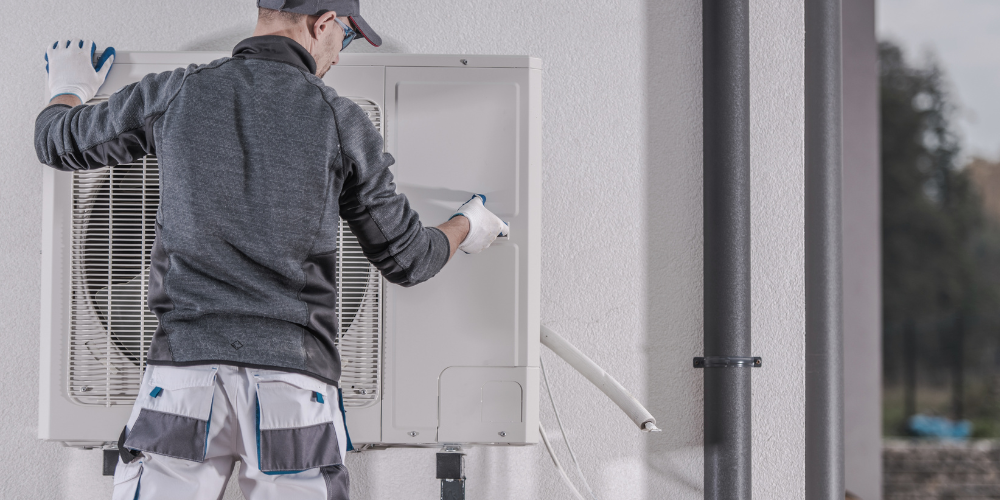

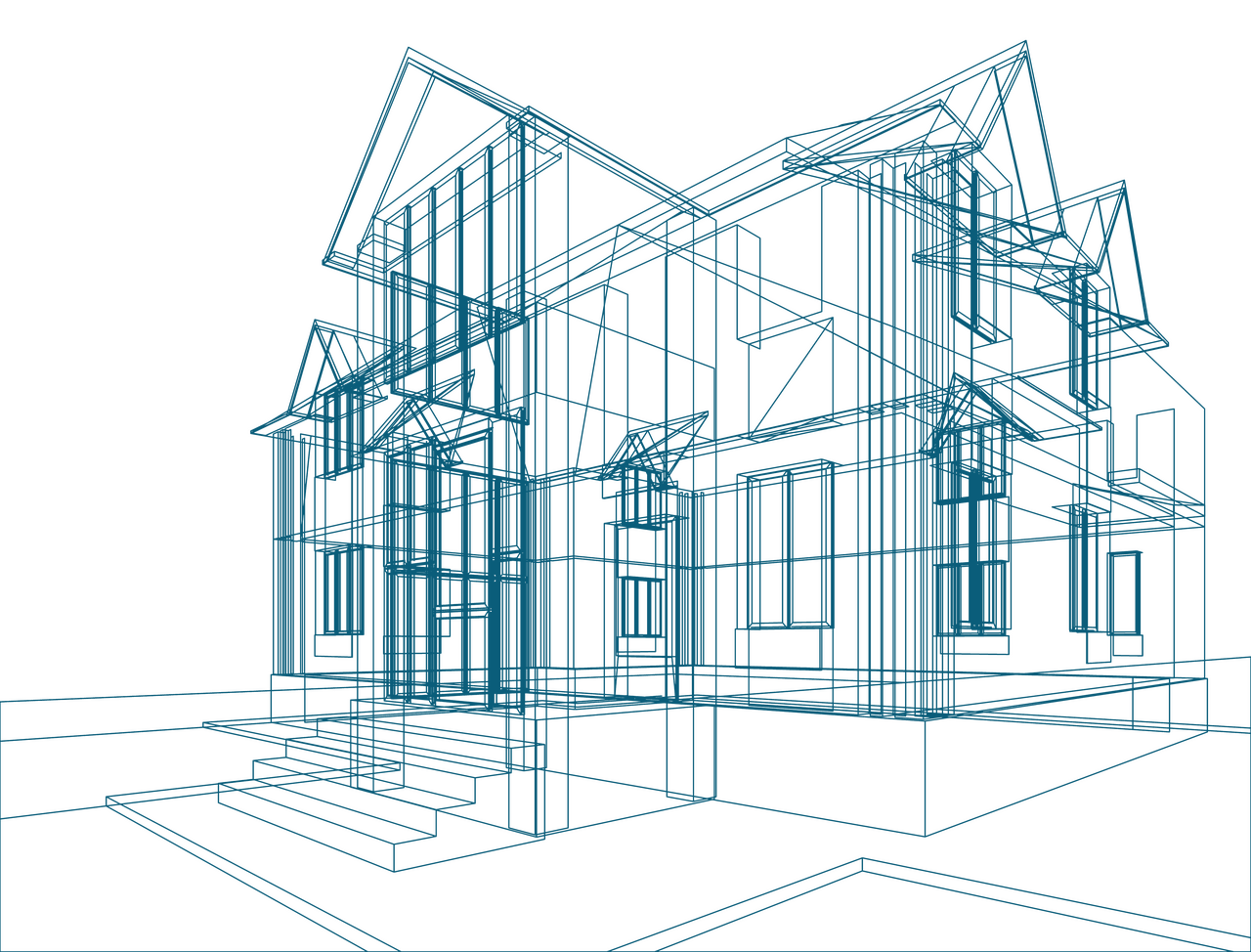
News I published 25 November 2023 I Ralitsa Ruseva
Heat pumps are the most installed sustainable products, but high investment costs will remain a barrier in the coming years
Sustainability plays an ever-larger role in the installation sector. The combination of climate change worries and high energy prices caused by the conflict in Ukraine has made more sustainable systems and solutions more necessary. Consequently, European HVAC installers and plumbers experience a growing demand for sustainable options from their clients and are involved in more installations of sustainable systems.
Sustainable systems are a broad term, however. As we saw in a previous article, however, as the results of USP Marketing Consultancy’s European Mechanical Installation Monitor show, the sustainable systems asked for the most are not necessarily the sustainable systems that installers install the most.
Most asked-for are not necessarily the most installed sustainable solutions
In 59% of the projects in which sustainability is taken into account, heat pumps are sustainable systems that customers ask their installers about. At some distance, photovoltaics are the second most asked-for sustainable product (21% of sustainability projects). That is what customers ask though, not what is installed.
When we look at the sustainable products that are installed the most, heat pumps are also in the first place. Photovoltaics, however, are not the second but the third most installed sustainable products, following gas boilers or heaters. This shows that there is indeed a difference between the sustainable products that customers ask about the most and the sustainable products that they end up buying and getting installed.
Cost barriers keep some customers reliant on gas
The second-most installed sustainable products are gas boilers or heaters. Also, when we look at which type of heat pumps are installed, air-source heat pumps are installed the most, followed by hybrid heat pumps, which still use gas as well. This is interesting because the transition is supposedly away from gas and towards electrification. So why are gas-reliant systems still installed as much as sustainable solutions?
A clear answer is found in the high prices of fully electric heat pumps. Many consumers may not be able to cough up the hefty investment necessary for a heat pump. However, they may be able to buy a hybrid system, which is generally much cheaper than a fully electric heat pump, or else a new gas boiler or heater that is much more efficient than their old gas system.
High initial investment costs will likely remain a problem in the future
As installers report, the high initial investment costs are a major barrier preventing some people from choosing sustainable systems like fully electric heat pumps. The high demand for those systems is a major cause of this cost barrier. Supply is currently too low for that growing demand, which is driving up prices. This supply bottleneck will likely remain until it is caught up by manufacturers who are currently investing in increasing production. That will increase supply, and competition and will ultimately lead to lower product prices.
However, the initial investment costs are not only determined by product prices. All these products need to be installed by qualified installers, and in the case of heat pumps, installations can take much more time than the old and familiar gas boilers. An increasing shortage of installers causes an installation bottleneck that will continue to drive up labour prices, thereby adding to the initial investment costs.
For a full overview of the trends and developments in the installation sector in six major European markets, we refer you to USP Marketing Consultancy’s European Mechanical Installation Monitor.

Read more


16 October 2024 I Henri Busker
The Building Blocks of Prefab: Key Materials
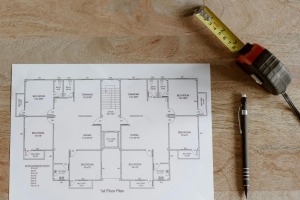

11 October 2024 I Dirk Hoogenboom
Rethinking European Construction: Prefab Trends
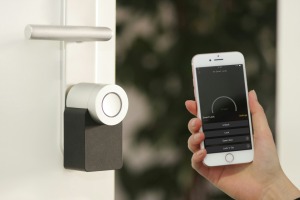

24 September 2024 I Jeroen de Gruijl
Blockchain, AI, AR and IoT – Architects’ Outlook
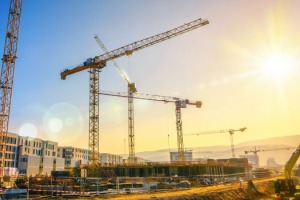

24 September 2024 I Dirk Hoogenboom
Future Developments in Construction Still Far Away

Fresh Insights Await
Our latest reports
Delve into the newest findings across various market segments, crafted for a cutting-edge overview. Explore our latest reports, brimming with up-to-date data, trend analyses, and in-depth examinations, all tailored to provide you with a comprehensive understanding of the current market dynamics.
Construction
Home Improvement
Installation
Special reports
Construction
Prefab H1 2024
2024 63 pages
Discover the adoption rate and benefits of prefabrication technology among European contractors in H1 2024. Understand the driving forces behind prefab usage and its impact on project efficiency and cost-saving.
6,300 Euro
Construction
Sustainability 2024
2024 72 pages
Painter Insight Monitor 2024 will focus on understanding the specific needs, preferences, and challenges faced by painters when it comes to sustainable products.
10,815 Euro
Construction
Importance of branding & branding funnels 2024
2024 62 pages
This report offers a comprehensive overview of importance of branding and branding funnels with a specific focus on European handymen. Brand behaviour is covered for each country, showing purchasing power, differences regarding quality, sustainability, online shopping, innovation-habit and private labels,
8,400 Euro
Construction
Future of construction Q2 2024
2024 82 pages
Explore the evolving future in construction sector among European architects in Q2 2024. Delve into the factors driving material preferences and the impact on construction aesthetics and sustainability.
1,850 Euro
Construction
Trends in material usage Q1 2024
2024 102 pages
Explore the evolving trends in material usage among European architects in Q1 2024. Delve into the factors driving material preferences and the impact on construction aesthetics and sustainability.
1,850 Euro
Construction
Media orientation H2 2021
2024 161 pages
Explore the media engagement patterns of contractors to optimize your marketing strategies. Dive into a pool of insights that unveils how contractors interact with different media channels.
6,300 Euro
Home Improvement
Purchase channels Q2 2024
2024 90 pages
The European Home Improvement Monitor offers valuable insights on purchase channels in the European home improvement industry, examining the evolving preferences and behaviors of consumers across traditional retail and emerging online platforms.
3,150 Euro
Home Improvement
Sustainability Q1 2024
2024 81 pages
Delve into sustainability trends in the home improvement sector in Q1 2024. Discover consumer preferences and the shift towards eco-friendly home improvement solutions.
3,150 Euro
Home Improvement
DIY versus DIFM Q4 2021
2024 113 pages
This report is a must-have if you’re in the home improvement industry. It provides a wealth of information on the behaviour of DIY and DIFM consumers, their motivations, and the factors that influence their purchasing decisions.
3,150 Euro
Home Improvement
DIY or DIFM Q4 2023
2024 70
Explore the prevailing trends between DIY and DIFM in Q4 2023. Understand consumer preferences and the factors influencing their choice between DIY and DIFM.
3,150 Euro
Home Improvement
Branding Q3 2023
2023 93 pages
This report offers an extensive overview of the home improvement industry, with a focus on branding and the most popular brands within different categories. Within this report, you will gain insights into how customers perceive home improvement brands and what motivates them to buy certain products.
3,150 Euro
Home Improvement
Purchase channels Q2 2023
2023 114 pages
The European Home Improvement Monitor offers valuable insights on purchase channels in the European home improvement industry, examining the evolving preferences and behaviors of consumers across traditional retail and emerging online platforms.
3,150 Euros
Installation
Smart & Connected Products Q2 2024
2024 120 pages
This report provides a comprehensive view of the attitudes of installers toward smart building solutions, specifically among electrical installers and their clients. In the report, you will find insights into the installers' experiences with installing smart products and the willingness of end users to invest in such solutions, as well as their motivations and pain points.
3,150 Euro
Installation
Smart and connected products Q2 2024
2024 129
This report provides a comprehensive view of the attitudes of installers toward smart building solutions, specifically among HVAC installers, plumbers and their clients. In the report, you will find insights into the installers' experiences with installing smart products and the willingness of end users to invest in such solutions, as well as their motivations and pain points.
3,150 Euro
Installation
BIM Q1 2024
2024 84 pages
The European Mechanical Installation Monitor report provides a detailed analysis of the plumbing and HVAC industry. This report specifically focuses on BIM adaptation in the industry.
2,650 Euro
Installation
Sustainability Q1 2024
2024 99 pages
The European Electrical Installation Monitor report provides a detailed analysis of the sustainable solutions in the installation industry. This report specifically focuses on sustainability aspects in the industry.
3,150 Euro
Installation
Challenges toward sustainable future Q4 2021
2024 111 pages
2,650 Euro
Installation
Purchase channels Q4 2021
2024 106 pages
Delve into the training needs within the electrical installation sector. Understand the areas requiring skill development to meet the evolving demands of the industry.
3,150 Euro
Special reports
European Sustainability Report 2024
2024 51 pages
This report provides in-depth insights based on triangulation of key market information and data as well as data from USP Marketing Consultancy’s key monitors that are carried out year in, year out. The focus of this report is on the most important stakeholders within the construction industry, namely architects, contractors, electrical and HVAC installers within The United Kingdom, The Netherlands, Belgium, Germany, Poland, France, Italy, and Spain.
3,950 Euro








